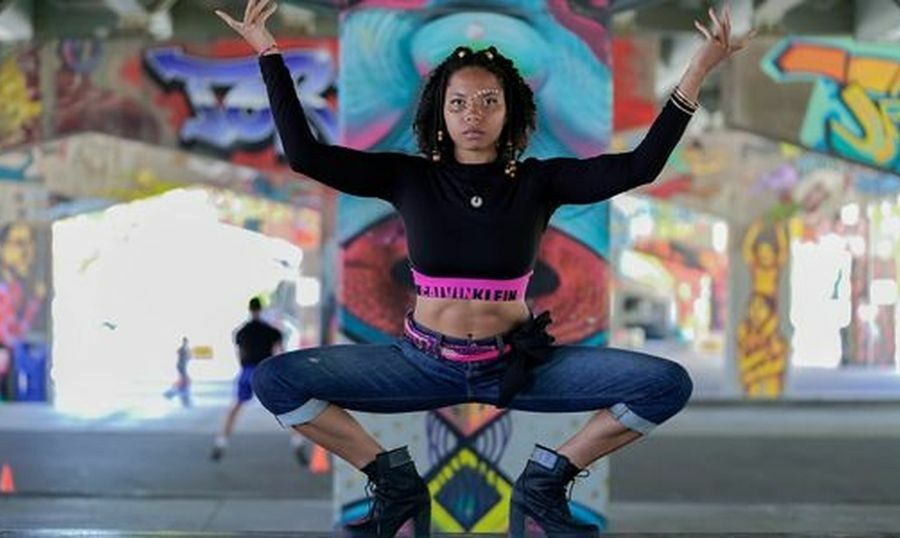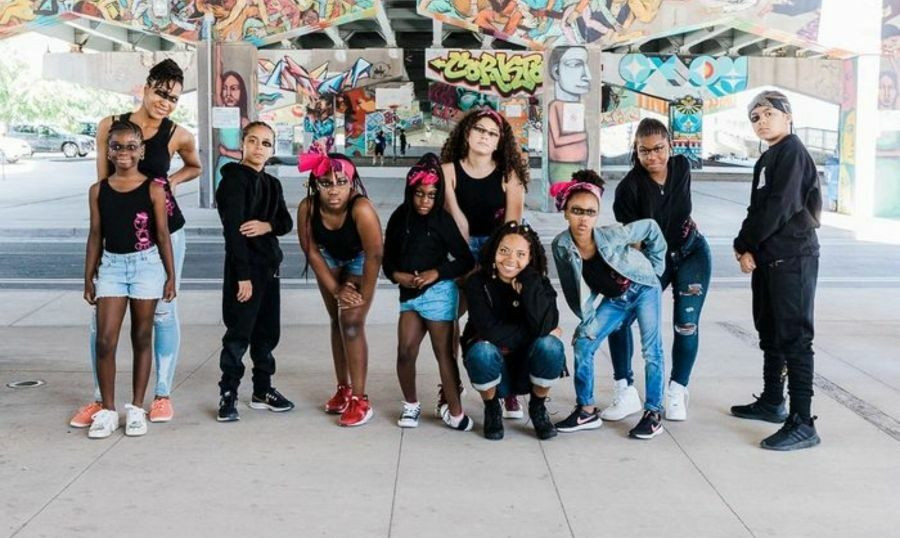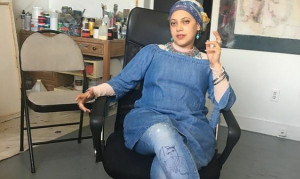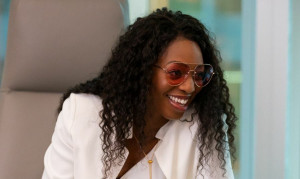Habbib was introduced to gymnastics as part of a parent and tot program when she was only one and a half years old, recounting it as one of the first things she did after learning to walk. At age 3, Habbib was independent enough to be left at the gym on her own.
According to Habbib, sports played an important role in her family. “My father was a soccer player and my mother loved gymnastics,” says Habbib of her parent’s upbringing. “Growing up, my mother never had the opportunity to participate in extracurricular activities because it was too expensive but she made sure her kids didn’t have those limitations.” Habbib believes her parents used sports and other extracurricular activities to help their kids assimilate to Canadian life and make the best of their opportunities. “My parents gave us everything that most Black families were not able to at the time,” Habbib remarks.
Habbib disagrees with the view that sports and dance don’t offer anything other than entertainment. She believes they are a fundamental aspect of life itself. “Gymnastics laid the foundation of what I am today. It taught me resilience, dedication, discipline, and accountability,” Habbib asserts. “More importantly, it gave me a lesson in injustice from a very young age because I was always treated differently being a young Black girl, and gymnastics showed me that despite my best efforts, the rules were always going to be a bit different for me.” Habbib sees these experiences as serving to only fill her with more resolve and a desire to succeed. “I outlasted my teammates because I was naturally talented and was able to persevere with determination and drive when it got really hard,” says Habbib. “I was making event finals around the world and winning competitions that nobody thought was possible for me.”
Some of the highlights of her achievements as a national athlete include (but are not limited to) the Senior Pan Am Championships (2005), the Commonwealth Games (2006), and the World Championships (2006). Habbib also won a full student-athlete scholarship at the University of Nebraska where she went on to study Communications with a minor in French and Sociology. She graduated with honours. Despite all her academic achievements, Habbib has some regrets about her athletic career. “I wasn’t great, but I could have been great if my coaches believed in me, and if I believed in myself,” she admits.
Habbib worked as a provincial and national level coach for seven years and is still active in the field. Now, her focus is to take things in a different direction, by adding dance. “Dance helped me learn more about myself and accept who I am,” claims Habib. “I’m proud of my culture and do a lot of creative things I didn’t know I could do before.” Habbib perceives dance and gymnastics as having much in common. “Dance gets to the core of things, while gymnastics is more about body awareness,” Habbib explains. “If you don't understand your body, it's impossible to excel at gymnastics.”
Although Habbib practised classical Russian ballet as a young gymnast, she argues that it didn’t resonate with her body. She recalls her experience with African ballet as being more natural. “With my bare feet on the ground and the vibrations pulsing through me, I felt a deep connection to my culture that I never felt before,” enthuses Habbib. After deciding to give herself over to African dance and become the best version of herself, she attended private lessons and trained with some of the best dancing instructors in Toronto. Her rigorous training included learning various styles of African influenced dance, including African ballet and Afro-Cuban modern contemporary. Habbib never wanted to live with regrets ever again after her national gymnastics years.
Now, as a full-time dancer, Habbib performs for various companies, events, and shows. She is currently in the process of launching her own dance production and plans to offer a unique style of dance that combines dancing and acrobatics.

Brittnee Habbib
Creating a Space to Encourage Young Black Girls
“I knew that I wanted to teach gymnastics to Black girls because growing up, I was on the receiving end of a lot of racism,” says Habbib of her passion to focus on training Black youth. “I could have achieved more if I had a Black coach and Black mentors.” It was this dream that led her to establish Girl Power’d in 2015. Girl Power’d is primarily focused on Black girls, although girls from other backgrounds are just as welcome. Habbib believes that children should start gymnastics at an early age. “At Girl Power'd the youngest gymnast we have is five and our dancers are around 7 years old."
Girl Power’d offers gymnastics classes on Saturdays and African dance sessions on Sundays. “Some girls do both of them and others just want the dancing or gymnastics,” she says, “but I always recommended they do both.” Each session takes in 10 to 15 girls for 10 weeks. The girls are asked to keep a journal to write down their feelings and what they want to accomplish during the 10-week session. In addition, adult gymnastics and dance classes are offered to all ages, and boys are also welcome to attend some of the classes and events.
The company organizes a Girl Power’d Day once a year, where different performances and workshops are held. Community elders, as well as mentors and musicians, are invited to teach participants about their culture and who they are. Girl Power’d teaches “personality development” to the girls to help encourage confidence in who they are and instill them with pride over their achievements. “Gymnastics is the understanding of ourselves and it all starts with the mind,” says Habbib, describing the methodology at Girl Power’d. “It starts with positive self-talk and visualization to help build the sort of self-love that allows you to do anything you put your mind to.”
For Habbib, the art of communications is just as important in life. Habbib hopes to help other Black girls avoid her experiences growing up, by being a Black mentor who listens and encourages her girls to talk to her about how they’re feeling. She wants to give them the voice she feels she was never allowed to have. Habbib is also building an exclusive platform that allows the girls to put their skills to good use, including performance in commercials. “We've partnered with various organizations that have used our girls as models for certain agencies, and now people are coming to book performances and casting for music videos.”
Girl Power’d applies different tools and frameworks to measure the outcome of its programs, including discussions with kids and their parents at the end of every session. This might explain why Habbib often receives encouraging testimonials from parents whose kids have exhibited improved academic performance, communication skills, and even eating habits. Habbib notes that girls who are skittish about public speaking at the start of a session, tend to open up by the end of it.
Habbib is grateful for the positive direction of Girl Power’d as she looks toward her goal of obtaining her own dance and gymnastics facility. She also looks forward to continuing to give back to the community.
“I want to continue my journey in life as an artist and inspire young girls in the Black community through my performances and discussions.”
Girl Power'd is located in Toronto, Ontario, and can be reached at This email address is being protected from spambots. You need JavaScript enabled to view it.

 By
By 





